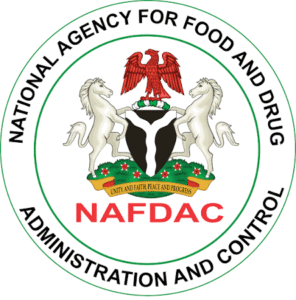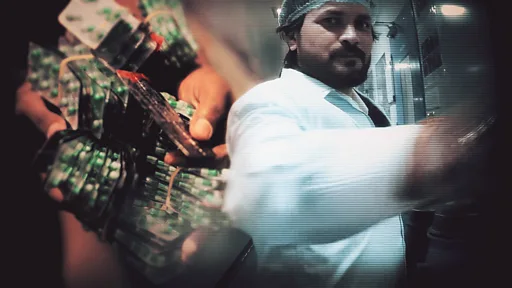By The National Patriots Investigative Desk.
A shocking undercover investigation by BBC Africa Eye has uncovered a hidden pharmaceutical network in India manufacturing powerful opioid-based painkillers destined for Africa. The pills—marketed under names like Tafrodol—are stronger than Tramadol and are being abused widely by African youths seeking quick relief from pain, stress, or hardship.
What the BBC team discovered inside the Indian factory reveals a systemic crisis: unregulated production, covert export to West Africa, and a booming illicit market threatening to erase a generation.
The factory behind the crisis
The BBC’s footage shows factory workers casually admitting that the pills are “mainly for Africa,” where, they say, “the demand is high.” Packages labelled as muscle relaxants and energy boosters are prepared for shipment under loosely monitored export categories.
Some of the products—never approved by India’s own drug regulators—contain opioid concentrations far exceeding legal pharmaceutical limits. Laboratory analyses revealed synthetic opioids mixed with muscle relaxants, creating a substance several times stronger than Tramadol.
The operation’s brazenness exposes a failure of international oversight in a supply chain that starts in South Asia and ends in the hands of West African street dealers.

From medicine to menace: a historical perspective
According to the United Nations Office on Drugs and Crime (UNODC), opioid trafficking from India into West Africa surged sharply from 2015 onward, as smugglers exploited weak customs systems and the high cost of legitimate pain management.
In a 2021 UNODC report, over 600 tonnes of Tramadol were seized globally in a single year, with over 70 percent linked to shipments bound for Africa. Nigeria’s National Drug Law Enforcement Agency (NDLEA) alone intercepted over 30 million opioid tablets between 2021 and 2023, many traced back to Indian manufacturers.

Opioid addiction in Africa is now described as a “silent pandemic.” The UNODC estimates that 10 million West Africans have misused pharmaceutical opioids at least once in the past year. The abuse rate among Nigerian youths aged 18 to 35 has doubled within five years.
‘Tafrodol’: the new street poison
Tafrodol, the latest variant identified in the BBC investigation, combines a high-grade opioid with a fast-acting muscle relaxant. The combination gives an intense but short-lived euphoria—followed by depression, heart strain, and dependency.
Dealers promote it as a “super-Tram” or “225 plus.” It is often sold without prescription in local pharmacies or markets for as little as ₦500 – ₦800 a pill—cheap enough for students and jobless youths to afford daily.

A Kaduna university student told Headlinenews.news:
“We call it the strong one. At first it helps you study longer and makes you fearless. But after months, your body shakes when you stop. Many of my friends have dropped out because of it.”
Another 24-year-old mechanic in Kano confessed:
“It makes you feel powerful, like nothing can hurt you. But it kills sleep and appetite. My friend collapsed last month and never woke up.”
These testimonials echo NDLEA and WHO warnings that non-medical opioid use increases the risk of cardiac arrest, liver failure, and mental-health breakdown.

The social cost — a generation in danger
Across Nigeria, Ghana, Sierra Leone and the Gambia, rehabilitation centers report a surge in admissions tied to synthetic opioid abuse. The Federal Neuropsychiatric Hospital in Kaduna reported that 60 percent of new substance-abuse cases in 2024 were linked to tramadol-type drugs.
Communities once battling unemployment are now fighting addiction epidemics. Teachers describe classrooms filled with lethargic or aggressive youths; hospitals report overdose deaths weekly.
Sociologist Dr. Oluwatobi Ajayi told Headlinenews.news:
“These pills exploit pain and poverty. Youths take them to escape hopelessness, but they end up enslaved to a chemical that rewires their brains. Tafrodol is not a medication—it’s a weapon against the future.”

Weak oversight and profit motive
India’s vast pharmaceutical sector—valued at over $50 billion annually—is respected for producing legitimate medicines, but a shadow sub-industry thrives in unlicensed factories. Enforcement gaps, political pressure, and export loopholes allow unregistered operators to supply African importers.
An Indian pharmaceutical insider admitted anonymously to the BBC team:
“African markets don’t check purity or dosage like Europe. Some clients ask for extra-strong tablets; we just meet demand.”

This unregulated trade not only violates international drug conventions but also undermines Africa’s public-health systems. Once these pills arrive, they often bypass pharmacies entirely, flooding bus stations and motor parks through informal dealers.
UNODC and WHO data — the warning signs
UNODC (2023): Over 250 million opioid tablets seized in West Africa in three years; 40 percent originated from South Asia.
WHO (2024): Opioid overdoses now account for 1 in 5 substance-related deaths among African youths.
NDLEA: Tramadol misuse contributes to over 50 percent of drug-related arrests in Nigeria.

Ghana’s Narcotics Control Commission: Recorded a 300 percent rise in synthetic opioid seizures since 2020.
These numbers highlight a crisis escalating beyond control unless source-country enforcement, African import restrictions, and public-education campaigns converge quickly.
Call to action — protecting the youth
Immediate bilateral action — Nigeria, Ghana, and other affected nations must pressure India diplomatically to investigate and close rogue factories producing export-only opioids.
Strengthen border control — Equip customs with modern scanners and forensic labs to identify counterfeit pharmaceuticals.
Community awareness — Churches, mosques, schools, and influencers must lead education campaigns on the deadly risks of Tafrodol and similar substances.
Youth rehabilitation & empowerment — Governments must expand counseling, skills programs, and job opportunities to replace addiction with purpose.
Legislative tightening — Update drug laws to criminalize the importation and distribution of unregistered pharmaceutical opioids and hold local collaborators accountable.
Message to the youth
Dear young Nigerians, Ghanaians, and Africans:
That pill you call “energy” or “relief” is not your friend. It numbs your pain today but steals your tomorrow. It destroys your brain, your organs, your will to dream.
Every time you swallow it, you surrender your potential. Real strength is not found in a capsule—it is in faith, focus, and perseverance.
Say no to Tafrodol. Say no to shortcuts that end in destruction. Say yes to your future.

Conclusion
The BBC’s undercover findings must serve as a turning point. The opioid epidemic sweeping across Africa is not just a health problem—it is a national-security emergency and a generational threat.
If governments fail to act, the continent could lose its most valuable asset: its youth.
The factories in India, the traffickers in transit, and the dealers on the streets form a deadly chain—but breaking it begins with awareness and decisive policy.

Headlinenews.news calls on African leaders, law-enforcement agencies, and global partners to move beyond rhetoric and act now.
Saving Africa’s youth is not optional—it is urgent.
Because a nation that loses its youth loses its tomorrow.
Princess G. Adebajo-Fraser MFR.
The National Patriots.




